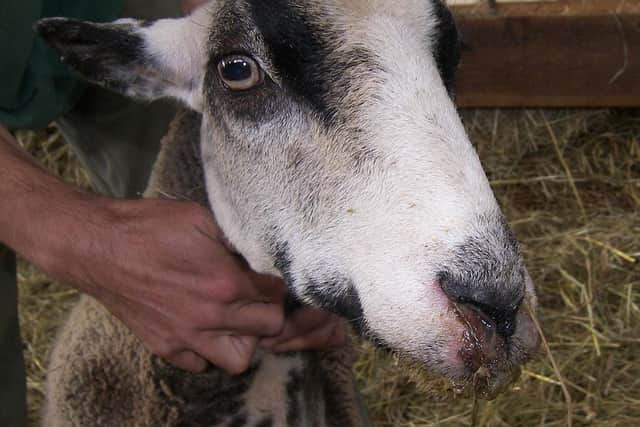After 16 years the notifiable disease bluetongue is back on UK farms
and live on Freeview channel 276
This viral disease, prevalent in mainland Europe, especially affecting the Netherlands, has now made its presence known once again in the UK.
Just recently, a case was verified on a farm in Canterbury, Kent, detected during routine surveillance. This singular case is part of a larger group of 14 confirmed infections across seven holdings, with the outbreak spreading as far as Norfolk at present. The return of bluetongue highlights potential risks for those who own animals susceptible to this infectious disease.


Advertisement
Hide AdAdvertisement
Hide AdThere are growing concerns in farming and animal keeping communities in the Greater Manchester area. Thankfully, so far, there have been no reported cases in the Greater Manchester area and it would seem to be free of bluetongue. However, it has entered the UK and worryingly it’s beginning to spread.
What is bluetongue?
Bluetongue is a notifiable viral disease, meaning there is a legal requirement to report suspicions of an outbreak to the authorities immediately. The disease is passed on to animals from biting insects like midges. It cannot be transmitted horizontally between the animals but vertical transmission is possible from the mother to their offspring.
It does not pose a threat to humans or food safety.


What to do if a case is suspected:
Vigilance is vital. As bluetongue is a notifiable disease a suspected case must be reported to the authorities immediately.
What is the treatment for bluetongue?
There is no treatment for bluetongue once it’s been confirmed. The only way to prevent the spread is to have all the animals culled.
Advertisement
Hide AdAdvertisement
Hide AdProactive vaccination can be effective. However, they only work against the serotype of the virus that they have been developed for. And there are no vaccines at the moment for the BTV-3 and BTV-4 serotypes currently in Europe.
Farmers and animal keepers in Greater Manchester need to remain vigilant and keep up to date on the spread of this dangerous disease as it can spread quickly and have a major financial impact. Tracking new cases can be done via the APHA website, or on the Livetec Systems App, created by leading biosecurity experts, Livetec Systems.